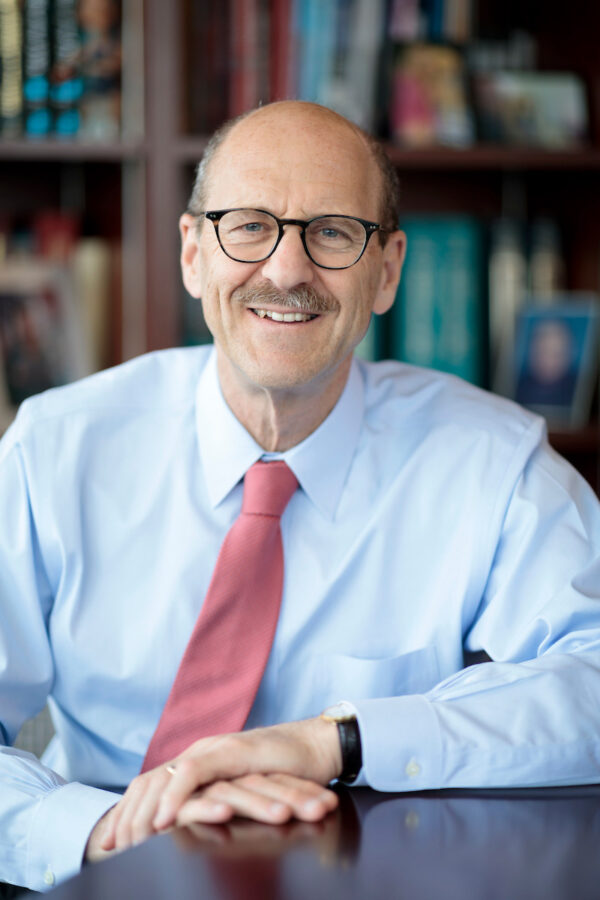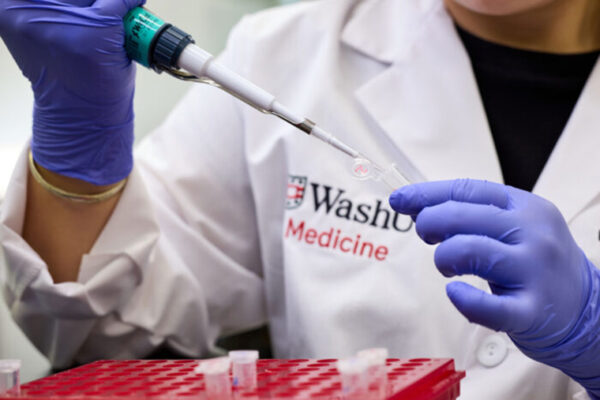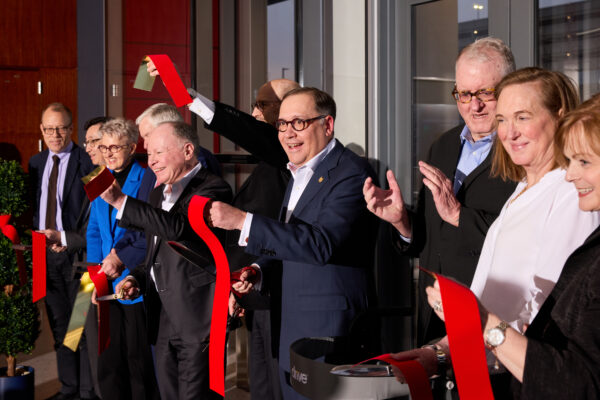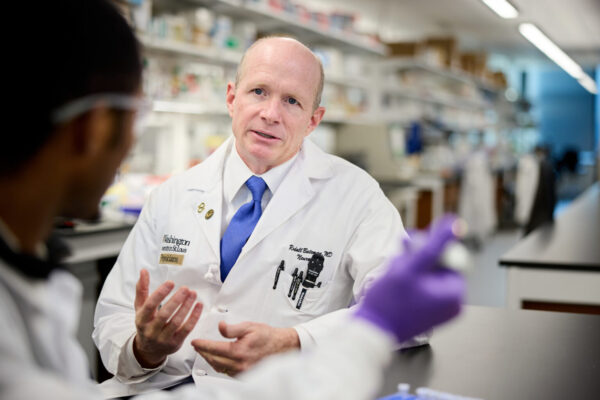
David H. Perlmutter, MD, executive vice chancellor for medical affairs and the George and Carol Bauer Dean of Washington University School of Medicine in St. Louis, will conclude his deanship on June 30, 2026, according to Chancellor Andrew D. Martin. He will remain on the WashU Medicine faculty as the Spencer T. and Ann W. Olin Distinguished Professor and will also continue his leadership role in commercial development as senior advisor to the chancellor for innovation and commercialization.
After 10 years in leading the medical school, Perlmutter will shift his focus to two initiatives: the launch of his autophagy therapeutics company and, most critically, the launch of the Washington University Development Corporation (DevCo). Conceptualized in collaboration with faculty, pharmacy industry leaders, venture capital leaders and WashU trustees, DevCo is a new model for drug discovery that is designed to more rapidly and efficiently identify and advance promising WashU science over the traditional “valley of death.” At a time of great uncertainty at the national level, this is also a potential new source for funding research at WashU.
“David Perlmutter has served Washington University with extraordinary distinction — as a physician, a scientist and a visionary dean,” Martin said. “His deep commitment to medical research and compassionate clinical care has shaped the future of medicine and the lives of countless patients. Under his leadership, our medical school has flourished, advancing scientific discovery and education at the highest levels. I am profoundly grateful for his service as dean and look forward to working with him in his next role as senior advisor for innovation and commercialization, where his insight and passion will help drive the future of translational science and discovery. His expertise and guidance will continue to be instrumental in advancing our mission to improve human health through innovation.”
A distinguished pediatric physician-scientist, Perlmutter was appointed dean in 2015. He previously had served as distinguished professor and chair of the Department of Pediatrics at the University of Pittsburgh School of Medicine and as physician-in-chief and scientific director at the Children’s Hospital of Pittsburgh of the University of Pittsburgh Medical Center. Before joining the Pitt faculty in 2001, he spent 15 years as a faculty member in the Department of Pediatrics at WashU Medicine. He began his academic career as a faculty member at Harvard Medical School in 1983.
Under Perlmutter’s leadership, WashU Medicine has grown as one of the nation’s premier academic medical institutions, with a $3.9 billion operating budget, a $1.2 billion annual investment in basic and medical science research, and one of the largest academic clinical practice groups in the nation. Its faculty includes 16 members of the National Academy of Sciences, 28 members of the National Academy of Medicine, and 12 investigators with NIH MERIT status.
Some highlights of advances at WashU Medicine during Perlmutter’s tenure as dean include:
- Construction of new research facilities. These include the Jeffrey T. Fort Neuroscience Research Building, one of the world’s largest facilities devoted exclusively to neuroscience research; a six-story addition to the Steven and Susan Lipstein BJC Institute of Health; and the new, state-of-the-art Gary C. Werths Building at Siteman Cancer Center, dedicated exclusively to outpatient cancer care.
- No. 2 in NIH funding. WashU Medicine is ranked No. 2 in the nation in funding from the National Institutes of Health (NIH); total awards from NIH of $683 million in federal fiscal year 2024 placed the school at No. 1 among the top 10 nationally in rate of growth over 10 years.
- Research advances. In the past decade, WashU Medicine has made significant progress in understanding and finding treatments for cancer, Alzheimer’s disease and numerous other diseases and conditions that plague human health.
- Philanthropic support. By leveraging large gifts such as the BJC Investigators Program; the Personalized Medicine Initiative, initially funded by Centene Corp.; other significant donations and industry partnerships, the school provides extensive funding for high-risk, high-impact projects to deliver new diagnostics and therapeutic strategies on an urgent timeline.
- Clinical expansion. The faculty practice of WashU Medicine has established ever more locations within the region and deepened its commitment to safety-net care across Missouri and Southern Illinois.
- Partnership with BJC Health System. Through a new 45-year affiliation agreement, the partnership has been reorganized to even more effectively lead the regional medical landscape well into the future.
- Curriculum modernization and medical student scholarships. Financial commitment to enhanced educational programming and opportunities strengthened the legacy of attracting the most talented MD, MD-PhD and PhD students, residents and fellows in the country.
“WashU Medicine has a community of faculty, staff and trainees that brings together a very special blend of intelligence, drive, warmth and humility,” Perlmutter said. “I have treasured these last 10 years working with that community to further advance our contributions to medical science and care. I particularly want to express my appreciation for the past and current members of the Executive Faculty who have been the major drivers of the tremendous growth and success of our faculty and school.”
Perlmutter is internationally recognized for his research on alpha-1 antitrypsin deficiency (ATD), a genetic disorder that can lead to severe liver damage. His work has led to advances in understanding how cells dispose of misfolded proteins that cause cellular dysfunction, as well as the development of a pipeline of ATD drugs that could eliminate the need for liver transplantation in those with the disorder. Since drugs in this pipeline target and enhance autophagy, a cellular degradation pathway that is critical for the functioning of all cells and declines with age, they also are strong candidates for the prevention of cognitive decline and other degenerative diseases of aging.
A graduate of the University of Rochester, where he earned his bachelor’s degree in psychology, Perlmutter earned his medical degree from Saint Louis University School of Medicine. He completed pediatric residency training at Children’s Hospital of Philadelphia and pediatric gastroenterology fellowship training at Boston Children’s Hospital. He is a member of the National Academy of Medicine and the American Academy of Arts and Sciences, past president of the Society for Pediatric Research, and past member of the Advisory Council of the National Institute of Diabetes and Digestive and Kidney Diseases. He has been honored with numerous awards throughout his career, including the E. Mead Johnson Award for Research in Pediatrics from the American Pediatric Society and the Sass-Kortsak Award for Pediatric Liver Research from the Canadian Liver Association. He has authored more than 200 scientific publications and holds 10 U.S. patents or patent applications.
The university will launch a national search for Perlmutter’s successor in coming months. Details about the search process and how members of the WashU community can participate and offer feedback will be shared soon.


